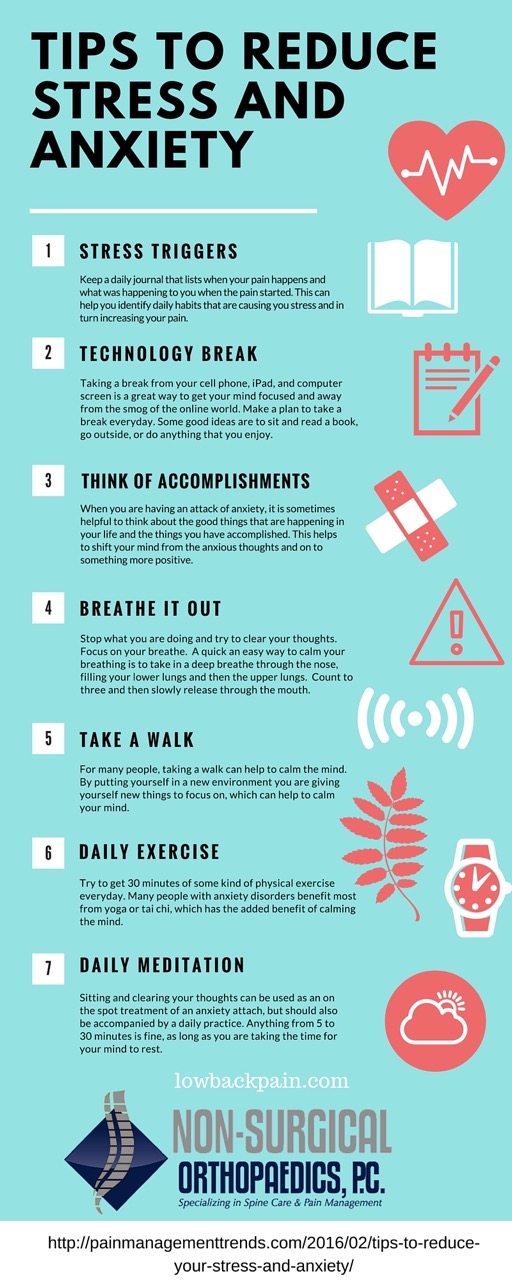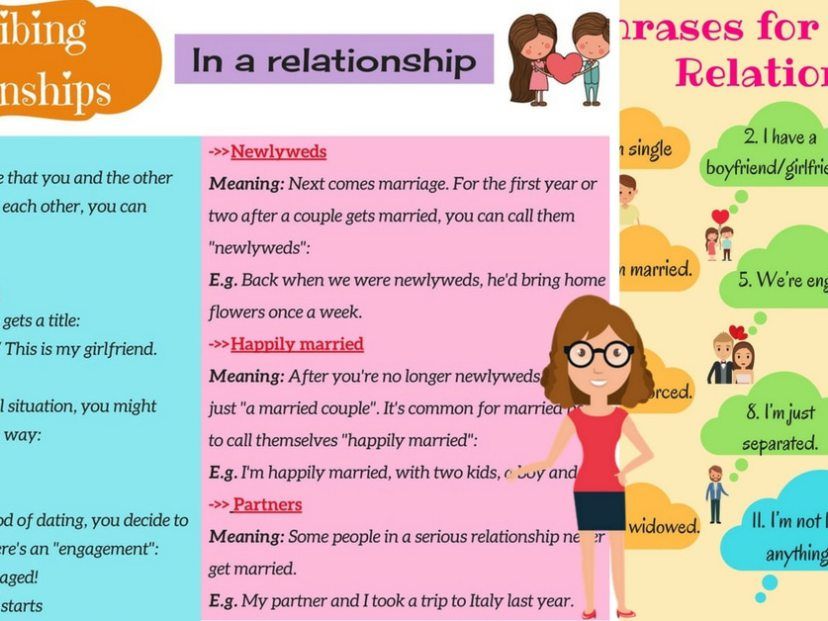How to regain intimacy
Learn 10 Ways to Rekindle the Passion in Your Marriage
A good sexual relationship is built on emotional intimacy and closeness.
A good sexual relationship is built on emotional intimacy and closeness.
A good sexual relationship is built on emotional intimacy and closeness.
Rekindle passion in your marriage. Jason and Kendra have been married for 12 years and have three children. Most of their conversations are about work, chores, their kid’s activities, and mundane aspects of their stale marriage.
Kendra puts it like this: “I love Jason, but the passion just isn’t there anymore.”
When Kendra drops this bombshell, Jason responds, “I thought we were doing okay, I really did. Even though we don’t have sex much anymore, it just seems like a phase we’re going through. I don’t have any energy left by the time I hit the bed at night.”
By all accounts, Kendra and Jason were passionate during the early years of their marriage. However, over the last few years, their sex life has dwindled and they rarely spend time together without their children. Kendra seeks out Jason for sexual intimacy and Jason often pulls away.
According to experts, the most common reason couples lose their passion for each other and stop being sexually intimate is a pursuer-distancer pattern that develops over time. Dr. Sue Johnson identifies the pattern of demand-withdraw as the “Protest Polka” and says it is one of three “Demon Dialogues.” She explains that when one partner becomes critical and aggressive, the other often becomes defensive and distant.
Dr. John Gottman’s research on thousands of couples discovered partners that get stuck in this pattern in the first few years of marriage have more than an 80% chance of divorcing in the first four to five years.
Foster Emotional Intimacy
A good sexual relationship is built on emotional intimacy and closeness. In other words, if you’re hoping to improve your physical relationship, you need to first work on your emotional connection. Focus on meeting your partner’s needs and communicating your own needs in a loving, respectful way.
In The Science of Trust, Dr. Gottman explains that couples who want to rekindle their passion and love need to turn towards each other. Practicing emotional attunement can help you stay connected even when you disagree. This means turning toward one another by showing empathy, instead of being defensive. Both partners need to talk about their feelings in terms of positive need, instead of what they do not need.
According to Dr. Gottman, expressing a positive need is a recipe for success for both the listener and the speaker because it conveys complaints and requests without criticism and blame. Dr. Gottman says, “This requires a mental transformation from what is wrong with one’s partner to what one’s partner can do that would work. The speaker is really saying, ‘Here’s what I feel, and what I need from you.’”
Rekindle Sexual Chemistry
During the early phase of marriage, many couples barely come up for air due to the excitement of falling in love. Unfortunately, this blissful state doesn’t last forever. Scientists have discovered that oxytocin (a bonding hormone) released during the initial stage of infatuation causes couples to feel euphoric and turned on by physical touch. It actually works like a drug, giving us immediate rewards that bind us to our lover.
Unfortunately, this blissful state doesn’t last forever. Scientists have discovered that oxytocin (a bonding hormone) released during the initial stage of infatuation causes couples to feel euphoric and turned on by physical touch. It actually works like a drug, giving us immediate rewards that bind us to our lover.
Holding hands, hugs, and tender touch are great ways to affirm your love for your partner. Physical affection sets the stage for sexual touch that is focused on pleasure. Sex therapist and educator Dr. Micheal Stysma recommends that you set a goal of doubling the length of time you kiss, hug, and use sensual touch if you want to improve your marriage.
Sexual attraction is hard to maintain over time. For instance, Kendra and Jason lack passion because they are unwilling to give up control and show vulnerability. As a result, they avoid sex and rarely touch each other. Sex therapist Laurie Watson says, “Most sexual concerns stem from an interpersonal struggle in the marriage. ”
”
Sale!
Gottman Relationship Adviser
$199.00View Details
Sale!
Gottman Relationship Coach: Enriching Your Sex Life
$49.00View Details
The Gottman Relationship Adviser, the world’s first complete relationship wellness tool for couples, takes the guesswork out of improving your relationship. Measure your relationship health with a research-based self-assessment, then receive a tailored digital relationship plan proven to heal and strengthen your connection.
Here are 10 tips to bring back the passion in your marriage:
1. Change your pattern of initiating sex
Maybe you are denying your partner or coming on too strong. Avoid criticizing each other and stop the “blame game.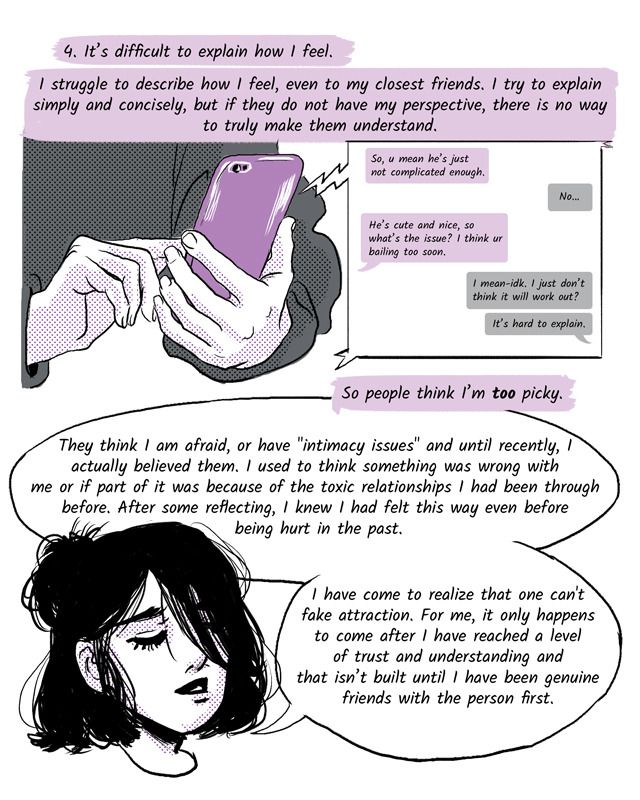 ” Mix things up to end the power struggle. For example, distancers may want to practice initiating sex more often and pursuers try to find ways to tell their partner “you’re sexy,” in subtle ways while avoiding critique and demands for closeness.
” Mix things up to end the power struggle. For example, distancers may want to practice initiating sex more often and pursuers try to find ways to tell their partner “you’re sexy,” in subtle ways while avoiding critique and demands for closeness.
2. Hold hands more often
According to author Dr. Kory Floyd, holding hands, hugging, and touching can release oxytocin causing a calming sensation. Studies show it’s also released during sexual orgasm. Additionally, physical affection reduces stress hormones – lowering daily levels of the stress hormone cortisol.
3. Allow tension to build
Our brains experience more pleasure when the anticipation of the reward goes on for some time before we receive it. So take your time during foreplay, share fantasies, change locations, and make sex more romantic.
4. Separate sexual intimacy from routine
Plan intimacy time and avoid talking about relationship problems and household chores in the bedroom. Sexual arousal plummets when we’re distracted and stressed.
Sexual arousal plummets when we’re distracted and stressed.
5. Carve out time to spend with your partner
Try a variety of activities that bring you both pleasure. Have fun courting and practice flirting as a way to ignite sexual desire and intimacy. Dr. Gottman says that “everything positive you do in your relationship is foreplay.”
6. Focus on affectionate touch
Offer to give your partner a back or shoulder rub. People associate foreplay with sexual intercourse, but affectionate touch is a powerful way to demonstrate and rekindle passion even if you are not a touchy-feely person.
7. Practice being more emotionally vulnerable during sex
Share your innermost wishes, fantasies, and desires with your partner. If you fear emotional intimacy, consider engaging in individual or couple’s therapy.
8. Maintain a sense of curiosity about sexual intimacy
Experiment with new ways to bring pleasure to each other. Look at sex as an opportunity to get to know your partner better over time.
Look at sex as an opportunity to get to know your partner better over time.
9. Vary the kind of sex you have
Have gentle, loving-tender, intimate, and highly erotic sex. Break up the routine and try new things as sexual needs change.
10. Make sex a priority
Set the mood for intimacy before TV or work dulls your passion. A light meal along with your favorite music and wine can set the stage for great sex.
Even if you are not a touchy-feely person, increasing physical affection and emotional attunement can help you to sustain a deep, meaningful bond.
The good news is that allowing your partner to influence you can reignite the spark you once enjoyed. In fact, Dr. Gottman reminds us that friendship is the glue that can hold a marriage together:
“Couples who know each other intimately [and] are well versed in each other’s likes, dislikes, personality quirks, hopes, and dreams are couples who make it.”
For more ideas on how to rekindle the passion in your relationship, subscribe to The Gottman Relationship Blog below:
Terry Gaspard, MSW, LICSW
Terry Gaspard MSW, LICSW is a licensed therapist and author.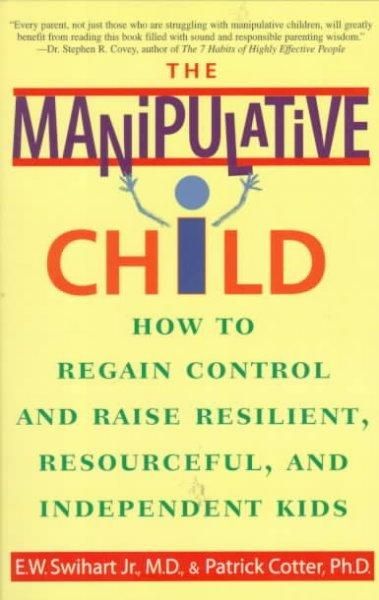 ="wpforms-"]
="wpforms-"]
The Most Important Tool For Restoring Emotional Intimacy To Your Marriage
Peggy L. Ferguson, Ph.D., LMFT, LADC, has been in private practice in Stillwater, Oklahoma since 1990, and in the counseling field for over 25 ...Read More
The first thing you must do to restore intimacy to your most important relationship is to increase the amount of time that you spend together. It is not only the first thing that you must do, it is the most important thing you must do if you want to recover that sense of “us-ness”.
Partners often come into counseling complaining that they have grown apart, that they are not feeling loved, or that they do not feel important to the other partner. What most of these couples have in common is that they do not spend much time together. They usually believe that they do not spend any less time together than their friends spend with their spouses. They may be correct. However, when couples are missing the closeness that they once had and not feeling loved, a lack of time together is a major part of the problem.
They may be correct. However, when couples are missing the closeness that they once had and not feeling loved, a lack of time together is a major part of the problem.
Of course, many couples are in chronic conflict with each other. Chronic conflict makes it difficult to enjoy the moment with your partner when you are primed and ready to see everything they say or do as negative and motivated by a desire to hurt you in some way. Ongoing conflict and negative feelings about the partner and the relationship play a role in avoiding spending time with each other. Who wants to expose himself or herself to a person or situation that is just going to hurt their feelings? Athough this couple has to work through the conflict to restore a desire to spend time together, they have to spend time together to work through the conflict.
There are just as many other couples who are not in chronic conflict that feel disconnected and emotionally abandoned by each other. The most common excuse I hear is that “we are so busy” with work/school/kids/aging parents/etc. , that we don’t have the time or energy to carve out any time for ourselves as a couple. Most people live very busy lifestyles these days.
, that we don’t have the time or energy to carve out any time for ourselves as a couple. Most people live very busy lifestyles these days.
Explore Your Options Today
Parents of school aged kids often find that their evenings and weekends of taken up by soccer/football/baseball/karate/dance/etc., and protest that they just don’t have the time to set aside for “dates” or “couple time”. Parents who are so over-engaged with kid activities are often actually doing a disservice to the kids, who are also over-engaged. Tired, stressed out kids will often try to tell parents that they want to quit some of the activities, but parents, fearful that the kids will develop a pattern of not following through, keep the child engaged past their interest and tolerance. These kids could benefit from a little unstructured time and may actually benefit more from a set of parents that are more tuned in to each other, more loving and accepting toward each other, and happier in their marriage than parents sacrificing their marriage for extracurricular activities. Parents are a child’s most important role models for how to be in relationships. Parents that are spending an inadequate amount of time and attention on their marriage are modeling this to the kids. Marital problems that are associated with not spending enough time together, are also serving as a model for the children’s adult relationships.
Parents are a child’s most important role models for how to be in relationships. Parents that are spending an inadequate amount of time and attention on their marriage are modeling this to the kids. Marital problems that are associated with not spending enough time together, are also serving as a model for the children’s adult relationships.
Not only is spending time together essential for restoring intimacy and marital happiness, the way you spend time together is also important. For one partner, spending time in the same room watching the same television program may count as quality time together. For the other spouse, this activity does not count at all, and may serve as a source of hurt and anger. You do not have to be doing anything “special” like taking a vacation or going on a “date night” to be engaged in establishing closeness in your relationship. Many people still harbor the notion that they can spend next to no time together, carve out a tiny slice (one hour a week as date night), then will count as “quality” vs. “quantity” time together. “Quality” time may spent in a dark movie theater does not allow for meaningful conversation. If you are setting aside small blocks of time for your marriage, examine it for the actual amount of “quality time” you are getting from it. Quality time equals time engaged meaningfully with each other. Do you have to be talking to spend quality time? No. If you are both together, connected in some meaningful way, where you both believe it to be meaningful, you have quality time. Couples share meaningful exchanges throughout the day, that may not add up to very little actual time together, but that account for feeling close and connected.
“quantity” time together. “Quality” time may spent in a dark movie theater does not allow for meaningful conversation. If you are setting aside small blocks of time for your marriage, examine it for the actual amount of “quality time” you are getting from it. Quality time equals time engaged meaningfully with each other. Do you have to be talking to spend quality time? No. If you are both together, connected in some meaningful way, where you both believe it to be meaningful, you have quality time. Couples share meaningful exchanges throughout the day, that may not add up to very little actual time together, but that account for feeling close and connected.
However, couples need more than “quality time” together. They need a quantity of time together. Couples who are experiencing a lack of closeness usually need to spend more time together to have that sense of connection. While just being together and being engaged meaningfully, whether or not you are talking, it usually takes spending quite a bit of time together to establish that shared sense of being meaningfully engaged.
Partners also enter relationships with their own emotional baggage, which may include insecurities and a higher need for closeness than the other partner. Conversely, one partner may have a much lower need for closeness than the other partner, based on his/her own emotional baggage. A couple will rarely have the same level of need for closeness vs. distance at the same time. In the beginning couples share that same desire for closeness as they are establishing the relationship. It is often described as the process of “falling in love”, when each is excited about seeing the other, pays a lot of attention to what the other is thinking/feeling, and is very conscious of relationship dynamics. At this point, both partner are flooded with neurochemicals that make this a very exciting time. When couples come into counseling, one will often say that s/he just wants to feel like s/he did when they first got together. S/he wants to re-experience that sense of falling in love or being in love. Couples can regain a sense of falling in love or being in love, but desire to have that experience does not magically make it happen. It takes much time and effort.
Couples can regain a sense of falling in love or being in love, but desire to have that experience does not magically make it happen. It takes much time and effort.
Couples that desire a return of closeness or emotional intimacy, can make that happen by slowing down and dedicating the time and energy that it will take to accomplish it. If you don’t have anything to talk about, or are having awkward silence in your time together, try some couple communication exercises, a couple’s retreat, or a joint activity. You can take a dance class or learn a foreign language. Break out of the rut and do something different. By restoring the emotional closeness and intimacy, many couples will notice an improvement in their sex life. Emotional intimacy and sexual intimacy are usually interwoven.
Keep Reading By Author Peggy Ferguson, Ph.D.
Read In Order Of Posting
5 steps to restore intimacy
109,875
Man and woman
1.
 Restore a trusting dialogue
Restore a trusting dialogue Is it enough for us to communicate, which has turned into an exchange of information about children and the household? After all, I want to be important for a partner, to see interest in his eyes. If we want to establish mutual trust, we can start by sharing this desire with a partner. “Tell him about it peacefully and respectfully, avoiding any reproaches,” suggests family psychologist Inna Shifanova. nine0003
Stop looking at your partner with disappointment and blaming him for no longer matching the ideal image that we had at the beginning of the relationship is the first step to regain intimacy. Let's look at him differently: as a person with whom we, starting from this moment, want to be happier, and try to take care of him the way we would like him to take care of us.
“If you start a conversation with an affectionate address, there are much more chances that it will go well,” Inna Shifanova recalls. In addition, it is important to realize what kind of couple we dream of building. And then discuss it with a partner and think about how to achieve the goal. “Instead of making a list of everything that a loved one does not do,” continues the family psychologist, “it is useful to ask him what we can do for him to feel loved.” Perhaps this will encourage him to do the same. nine0003
And then discuss it with a partner and think about how to achieve the goal. “Instead of making a list of everything that a loved one does not do,” continues the family psychologist, “it is useful to ask him what we can do for him to feel loved.” Perhaps this will encourage him to do the same. nine0003
Going out together gives partners the opportunity to once again see independent, attractive people in each other which I didn’t say out loud,” admits 43-year-old Svetlana. Now, when I want something, I just ask him for it. I tell what is important to me and ask about his desires. I feel like I can trust him again. And the fact that we are different is no longer annoying. On the contrary, it is interesting!” nine00032. Give each other time
With the advent of children, a married couple turns into a parental one ... and often gets lost in it. Husband and wife need to set aside time to be together. This is good for both the couple and the kids, who should know that the parents chose to live together for more than just taking care of them.

“It took me half a year to persuade my wife to go to visit, leaving the child with her grandmother,” recalls 36-year-old Fyodor. And I can say that I was lucky. Now we at least occasionally go out somewhere together. But we have familiar families who seem to be divided: the wife is at home, the husband goes to his friends. nine0003
Some emotionally distance themselves from their partner, risking sending him to search for the missing warmth to others. And a joint “going out” gives partners the opportunity to escape from worries and again see independent, attractive people in each other. But psychoanalyst Fabien Kremer suggests “taking time to be alone at home. If we spend one hour each evening together, without TV, without a mobile phone and without children, we show each other that relationships are important to us.” nine0003
You can have a glass of wine together while cooking dinner, or go out for a walk with your dog. “Over time, you begin to feel the need for such moments, because they really bring you together,” says 37-year-old Daria.
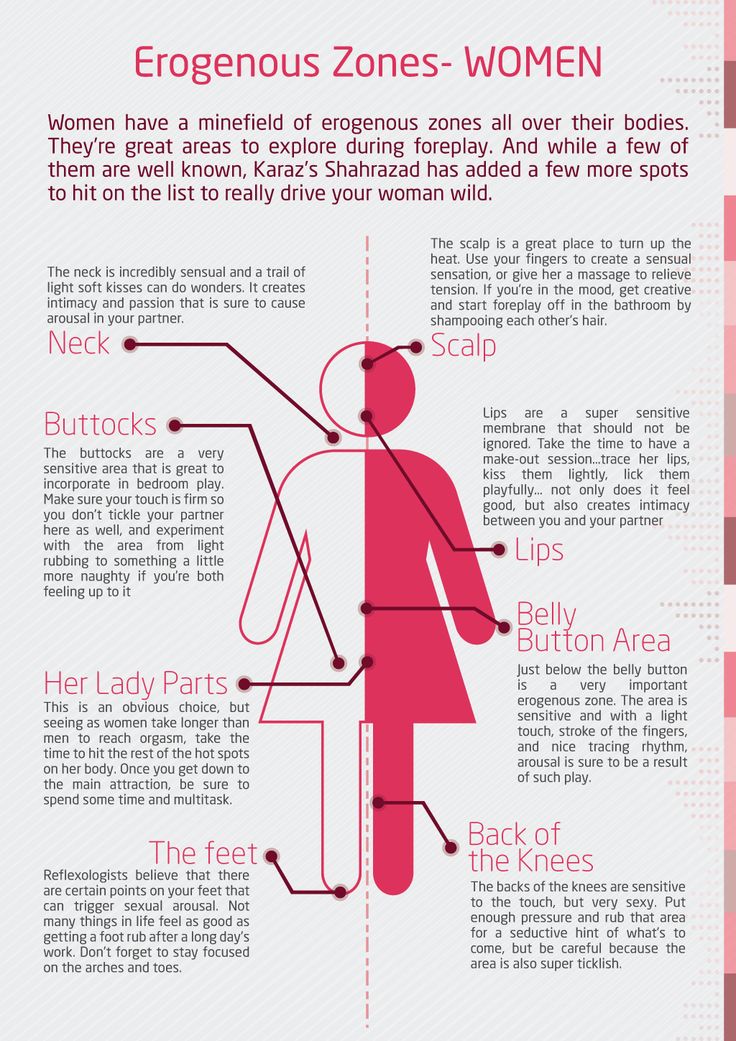
If the relationship becomes too ordinary, the reason may be that both spouses or one of them avoid being face to face with a partner. What exactly are they afraid of? Get bored? Find that they do not meet the expectations of another or their own? Here are some questions to think about. nine0003
3. Continue courtship
“At home she wears a tracksuit, and she brings beauty only when we are going somewhere,” says 44-year-old Denis with regret. “I don’t think I matter to her anymore.” Of course, it's about the sense of proportion. Sometimes it's nice to relax at home. But there is a danger that at some point the relationship will lose its eroticism.
“Remaining seductive is a way of saying “I want you to like me” to another and thereby giving him confidence, says psychotherapist Isabelle Constant. In addition to grooming, there are other signs of interest that are more original than the kiss on duty in the morning and evening. You can try to come up with something so that it would be nice for the other person to come home, to make him little surprises.
nine0003
“Whether you like it or not, but “killers of love” exist!” 34-year-old Ekaterina is convinced. Indeed, it is difficult for us to remain mysterious when we know almost everything about each other: from signs of a bad mood to physiological details. The generosity of love would like to forgive all this. But desire is much less indulgent. And here, according to Isabelle Constant, the game comes to the rescue.
Mutual admiration strengthens self-esteem and nourishes the desire to be together“We date each other in bars and pretend it's our first meeting,” says 34-year-old Nikolai. “Every time I get to know my wife again, I see her with different eyes.” His wife Elena says that she is still surprised by the compliments of her beloved and the enthusiasm with which he wins her again and again.
Mutual admiration strengthens self-esteem and nourishes the desire to be together. Our efforts to reinforce our partner's confidence in their beauty and personal worth remind them—and us—of why they have become indispensable.
nine0003
4. Putting relationships first
A couple is not just a union of two. In it, everyone discovers values that are important to him: communication, closeness, confidence in the future. When we begin to doubt our worth and our place in the world, seeing ourselves as part of a couple can strengthen us. “By creating rituals that show that we are happy with the relationship, we give the partner confidence, remind him of the importance of our connection, and ourselves of the commitments made,” notes Fabien Kremer. nine0003
But the shared intimate space needs protection. Therefore, we should establish boundaries between our couple and the outside world. Reaffirming such boundaries is the respect with which we always talk about a partner with others, no matter what happens in the relationship. Fabien Kremer also urges "to assert communication with a partner in public and avoid ambiguous behavior, that is, not to meet with the former in his absence and not to maintain close friendship with members of the opposite sex.
" nine0003
Old fashioned? Each couple adopts their own rules of conduct. The main thing is to spare the sensitivity of the beloved and not to arouse his jealousy. To understand what offends him in order to be able to calm him down, and also to be well aware of the reasons why we sometimes want to start a relationship outside of a couple. After all, “when we make commitments, we must inevitably give up something. But this is the price we pay for our union with our beloved to become something truly delightful, ”the psychoanalyst sums up. nine0003
Supporting each other
Giving priority to a partner means, among other things, taking into account his difficulties, listening carefully to him, being able to help, putting aside all business. Of course, it's not easy. Our era encourages independence, and sometimes we habitually close ourselves, instead of opening up, asking a loved one for help and leaning on him.
It is also not easy to admit the seemingly simple fact that this closest person is different, his feelings, thoughts, intentions, needs are different from ours.
Nevertheless, it is necessary to "accept the otherness of the partner, not wanting to change him," says psychoanalyst Jean-Michel Hirt. Tolerate that he is not always at his best, that he can be sick and weak. nine0003
"This implies," the psychoanalyst continues, "that we are able to accept our own weaknesses." That's what maturity is for. In addition, you should accept the partner's past. For example, understand his responsibility for children from another marriage and act in such a way that it is compatible with the couple that we are building. It's not about sacrificing yourself for your partner or seeking to gain power over him by protecting him. But about being able to make concessions, hoping for reciprocity. nine0003
Text: Elza Lestvitskaya Photo source: Getty Images
New on the site
“My husband is texting another woman: he regrets his marriage and complains that I am a bad mother”
“I talk to my friend like my boyfriend, but I don’t want him »
Love for porn destroys romantic relationships: new study confirms it
Time out, brainstorming and information gathering: what to do when the situation seems hopeless - 4 tips
Break up with loved ones: why maintaining relationships at a distance is better than live together
Harmony with yourself: how to stop being afraid of loneliness
“I feel that I am falling into the role of a “victim”.
How to stop complaining and get a job?
How to psychologically prepare for relocation: Tips for emigrants
20 ways to return the proximity to
Relations and sex
Elena Trudneva Elena72 125749
29 APR 13 08:08
Psychology, Psychology between partners
9000 9000 relations with a partner have become "cool" try to use these tips and perhaps you will again find something new and interesting in each other. nine0003
Heart-to-heart talk
There is something extraordinarily magical about whispering in bed. Lying together under the covers already implies intimacy. If you don't have important things planned for the evening, spend time with your loved one in bed, even just talking.
And that means no TV, kids in their rooms, and be sure to go to bed at the same time - even just a few nights a week.
When emotional intimacy is restored, you will most likely move on to restore physical intimacy. nine0101 .
Compliment
It's easy to criticize and complain about another, but too much negativity will ruin any relationship, even the strongest one. Research shows that it takes 7 compliments to neutralize just one negative comment - so start rebalancing.
Any person will like that their efforts were noticed and appreciated, and an unexpected (and most importantly from the heart) compliment will be of great importance. Does he have strong and strong hands? Do you like her laugh? Focusing on the positives will help you establish harmony and build trust to develop intimacy. nine0101 .
The power of touch
Mutual understanding in a couple is not only about talking. A hug at the end of a hard day or a comforting handshake goes a long way. If you notice that you rarely touch your loved one, you should make touching a mandatory ritual.
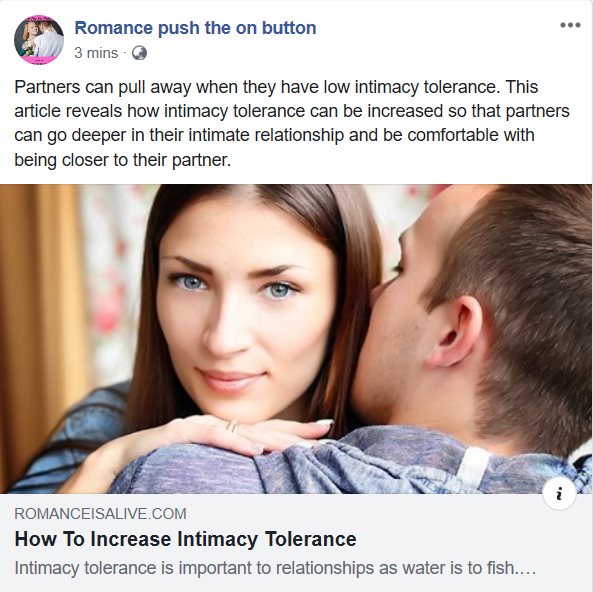
Make a purposeful effort and hold hands when walking together. If there has been no intimacy for a long time, then touch will definitely help to return to this again. nine0101
Don't forget about kissing
Research confirms that couples who kiss every day are much more likely to live a happy and long life together. In a way, kissing is much more intimate than sex.
Relationship experts report that couples stop kissing each other before intimacy is over. If your loved one is happy even with a kiss on the cheek, then surprise him with a real kiss the next time he comes home from work. nine0101
Water treatments
Many couples find that some degree of intimacy goes away after having a baby. In the period after the birth of a child, new parents only get used to their roles, and this can be very tiring, and attraction to each other can disappear. And as the children grow up, parents may forget about privacy and personal space altogether.
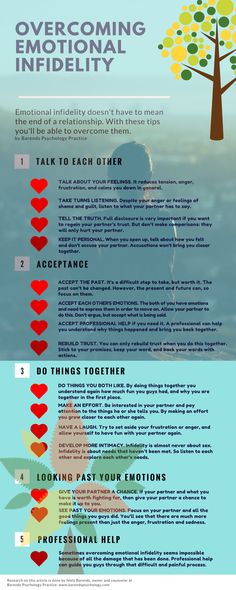
If you can't stop your kids from running into your room all the time and jumping on the bed screaming, try closing the door and taking a shower with your partner every morning or taking a hot bath together before bed. nine0101
Try something new
Sooner or later, many couples reach an impasse in relationships. The crazy passion of the past may seem like a phenomenon of almost a past life, but this does not mean at all that you cannot return it again.
Remake your usual day and start doing something new: take salsa lessons, take a hot air balloon trip, take acting lessons together - do anything that disrupts your usual lifestyle. Enjoying new experiences will bring you back together - give you new things to talk about, if not more. nine0101
We get scared together
Choose an activity that will cheer you up and your loved one on a day off.
When we do something that scares us, our body releases a huge amount of adrenaline, which mimics the 'falling in love' hormones.
A rollercoaster ride, skydiving, racing or watching a horror movie together is sure to get you excited and ready for more excitement and excitement.
Break from everyday worries
Even the strongest relationships can become inert if you don't look for new ways to understand and enjoy each other. The fastest way is to take a break from the daily routine. Visit another country and experience a new culture, who knows, maybe you will get to know each other again.
Can't afford to travel abroad at the moment? Arrange a trip out of town instead. Fresh air, sun and being close to nature will make you feel renewed and refreshed - besides, children will surely like to frolic in nature. nine0101Surprise each other
Many of us take for granted the fact that relationships change over time (according to research, the initial stage of a relationship, full of excitement and novelty, lasts 18 months), but this is not necessary at all.

Surprise your loved one by purchasing tickets for an event you are sure to enjoy together - and hide them somewhere out of the ordinary, just because it's fun. If you cannot spend a lot of money, have a picnic in a romantic secluded place, but before that, blindfold your lover (lover). Spontaneity and surprise are powerful aphrodisiacs, and who knows what else you'll need this blindfold for...
Think about your former hobby
Remember what inspired you, made you feel that you are alive. Try to restore your former interests - only this time enjoy it together.
You can take turns suggesting things to do and agree in advance that you will try to get to know each other's interests and be positive about everything.
Friends again
Remember how you joked over a glass of wine, talked for hours and agreed on any issue? You were friends (as well as lovers), so try to remember what you liked about your partner in the first place.
nine0003
Go back to that time and enjoy the fun you so badly need again, and you'll be halfway to regaining intimacy.
Location
You don't have to buy whips, handcuffs and play dress-up after watching movies to bring back the spark in a relationship.
Small changes can make a big difference. If you're having sex at the same time in the same place, try changing that. Kitchen table or stairs - the next time passion breaks out, do not climb into the bedroom, but give in to desire exactly where it caught you. nine0101
Go back to the beginning
Very few couples continue to enjoy unbridled passion after a long time. Once physical intimacy is gone, it is very difficult to get it back - but nothing is impossible.
Try to get to know each other again. Repeat the history of your relationship - wine and dates in a restaurant, laughter, exchanging playful messages on the phone.
And do not think that you know everything about your loved one, tastes and desires can change. Ask, learn and enjoy. nine0101
Don't judge the book...
Do you remember the days when you read aloud to each other? Agree, there is something magically intimate and close in this.Instead of reading your own book, read your favorite work to each other. And if you want to add spice, choose a piece with erotic scenes or let your partner read a book that contains something that you would like to try. After all, this is a great way to share fantasies if you are afraid to say it out loud. nine0003
Play with each other
At the end of a long hard day, you probably want to lie down in front of the TV. There's nothing wrong with that, but staring at the screen isn't likely to help create intimacy unless you're watching a romantic movie together.
Pick one night a week without TV and try something else. Chess, cards or board games for example.The kids will definitely love it. In addition, when the children go to bed, you can continue the games, but in a completely different sense of the word. nine0101
Laugh together
Everyone knows that laughter is the best medicine, and it works just as well in relationships as it does with our health. When we laugh, our body releases endorphins, including serotonin, a natural anti-depressant that makes us feel happy and joyful.
Laughter has always been a powerful tool that connects people. Try tickling each other, or buy tickets to a comedy show - do whatever makes you laugh. nine0101Look after each other
Who doesn't like to be looked after? Another plus for the power of touch. Research shows that physical contact has the power to release worries and worries, raise blood pressure, and boost immunity.
And the touch that a loved one gives is even stronger. If the relationship lacks intimacy, try giving each other a leg or shoulder massage, or a hair wash, without any hint of sex.

Learn more


